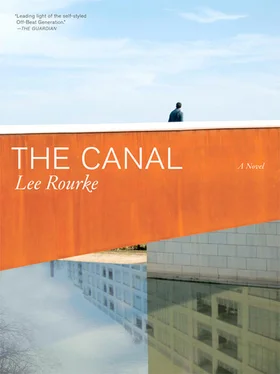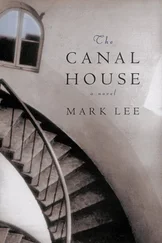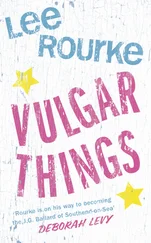Pretty soon another plane, an Airbus A320, appeared where the first had floated into view, above the city, slightly to the left of the previous plane’s flight path. I watched this one, too. It felt like I could do this all day long, until the flight paths changed for the evening. I wasn’t sure if anyone else felt quite like this, but I really hoped there was someone who did. The thought, the same thought, of spotting a plane at that precise moment: the moment it is free, stationary, free from gravity’s centrifugal pull.
It made me feel like laughing — that those fearful of flying, unaware of this continuous victory, unaware that they are, in fact, part of something spectacular, within something remarkable, were captured everyday in the sky by people like me, if there are any, down below, wishing they were up there, with them.
It felt peculiar wanting to laugh to myself, on my own, my body beginning to shake.
It felt really strange.
For some reason I knew she wasn’t going to appear at the bench that day, but I waited patiently for her anyway, all day long. I sat there and watched the two swans. I watched the male take off and land over and over again. He did this maybe eight or nine times during the course of the day. It was, at times, an impossible-looking procedure, and there were moments — his mate watching too — when I thought that he wasn’t going to make it, and sometimes I felt like the stretch of canal wasn’t long enough for the feat. At about the second take-off I noticed, directly ahead of me, the man in the whitewashed office block watching the swans, too. He was wearing his grey cardigan again, with a bright red tie and white shirt. He was sitting, his chair turned to face the canal, away from his desk, looking directly at the swans. He seemed transfixed. He watched, along with me, as the male swan, again, prepared for take-off.
I was concerned. The dredgers still hadn’t come and I was worried that the swan might injure itself on a discarded beer can, or, distressingly, the dumped scooter lurking underneath the water’s surface, as it raced across the canal, ready to take to the air. The dredgers should have been there long ago. It was getting quite messy out there, things needed to be shifted, to be taken away.
I continued to watch the swan each time it prepared for take-off. Before he finally took to the air he would gracefully float, paddling towards the far end of the whitewashed office block, away to the right of the bench, down the canal, away from me and the man, about thirty metres or so towards Wenlock Basin. There he would turn to face the rusting iron bridge in the distance to my left. Here it would almost look like he was mentally preparing for the feat that awaited him: staring straight ahead, like an athlete readying himself for the long jump, before slowly beginning to move forwards, quickening his pace, half lifting himself out from the murky water, impressively, with extreme determination, somewhat at odds with his natural stoic self. He must have weighed about fifteen kilos out of the water. He, the cob, was big. I watched as he gained speed, passing directly by me, almost running, his huge, white wings spread out, flapping. The feathers splayed, like an aircraft’s slats and flaps, and then, his feet still frantically running, though almost as if in slow motion, the swan lifted into the air, after passing underneath the rusting iron bridge. Instinctively missing any of the assorted debris in his path. I watched him gain height, tucking in his legs snugly, and bank back towards the bridge and bench, high above, heading west, following the canal. It was a magnificent sight — like watching the Boeing 767-200s bank across the London sky. I felt that something great had been accomplished. I wanted to shout to him, to congratulate him on his feat. It felt like something more important than life or death.
It was an awkward procedure: the three of us — me, the man in the whitewashed office block, and the swan’s mate — watching this beautiful creature lifting itself out of the murky water and up, away from us, into the air. It seemed to take an age, and at one point during take-off, before it eventually became airborne, it looked like it wasn’t going to happen. But it did; I saw it with my own eyes: the swan, its beautiful white wings exercising each muscle at full stretch, arched, flapping, lifting its bulk into the air, slowly, forcibly, with concentration, like its sole being depended on it, a complete dislocation with the earth, with the ground beneath my feet.
I looked over to the whitewashed office block. The man was looking up at the swan, too, and although the swan was now out of my line of vision it was obvious that he could still see it. The man remained there, his chair facing the canal, looking up at the swan until it disappeared from his own line of vision, then he turned around, wheeling his chair back to his desk to resume his tasks.
I noticed a rather odd mound of twigs and debris, earth and rubbish near to where the swan’s mate was still resting. I figured this mound to be their nest. It was much larger than anything the coots used. A nest of canal detritus. There were no signs of any signets, but there must have been some on the way. I hoped that there were some on the way. A bird of such splendour and monogamy deserves something in return.
I turned my attention back to the air: the swan in flight, the huge whiteness of it, the hulk of it returning to the canal, its fine wings, feathers splayed as it descended back towards the murky water, stalling against the air, returning back, back to its mate, embracing gravity again.
The swan finally landed. I looked over to the whitewashed office block: he was working, head down, still at his desk, staring at some papers, some files. He had forgotten all about the swan, the spectacle. He was back at his desk. Working. He had missed it.
It had felt like an entire age had passed me by since I wrote my letter of resignation. I still didn’t regret it as such, but I wished I had written it better. Its composition was far too rushed, too abrupt, too haughty. It wasn’t really me. I wish I had explained things better. Clearer. I tried to re-write the letter many times one afternoon, but the page remained empty. It was an impossibility to me. It felt like my arm, my right arm — I was writing this letter, or attempting to write this letter, in longhand, in a spiral notebook — consisted of lead, pure liquid lead running through its veins, filling up its bones instead of marrow. I couldn’t even lift it to the page, I could just about grasp my black Pilot V5 Hi-Techpoint 0.5 pen. That was it. Nothing. No matter how hard I tried to re-write that letter I failed to do so. It was a complete impossibility.
I was unaware of what time it was in the morning; time just seemed to be dragging me along. I was walking to the canal. I couldn’t remember what day it was. It was probably midweek. The light was odd, a mixture of shadow and slanting, piercing shafts of yellow. Rainclouds were forming. Nonetheless, those who were walking to work along the towpath seemed to possess a far more agreeable and upright gait than usual, despite the ominous gathering above. Gone were the bent backs, the downward glances and dishevelled postures. Now there seemed to be direction and purpose to their collective footfalls. Even the cyclists seemed more positively energised, thanking me for moving aside as they trundled by, actually adhering to the suggested two tings rule. I walked along, observing the reflections in the murky water, until I heard a helicopter overhead. I looked up to see it hanging there in the distance, above Islington. It was dragging beneath it a huge advertising banner for some airline. I tried to measure the size of the banner by using the façade of a block of flats to my right as a gauge, but it proved to be impossible due to the differing perspectives. I was finally happy with it simply being huge: a huge advertising banner hovering up high above me. Happy that I was untouched by it, that it wasn’t interfering with me, that it was, simply, distant. Below me, by my feet, I could hear the canal lapping against the concrete bank.
Читать дальше












